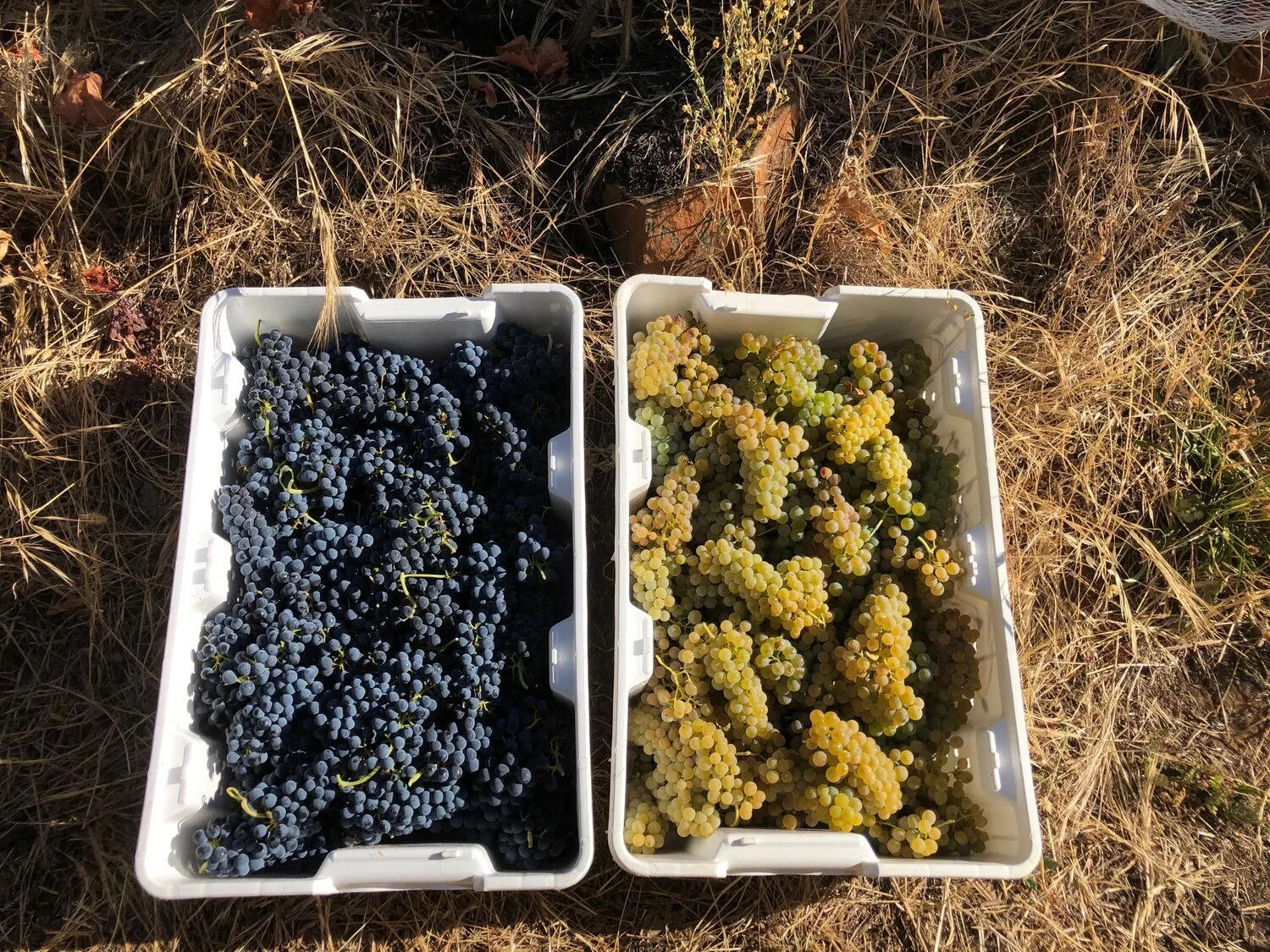La Onda (Dani Rozman)
Sierra Foothills/Richmond, California, USA
Onda Brava (Dani Rozman + Leo Erazo)
Itata, Chile
I’m very excited to share the wines of my friend Dani Rozman, the person behind La Onda and one of the primary reasons Disco Liquids exists. My wife Sophie, who designs some of his labels, met him in 2016, when he was helping make the wines of Clos Saron in North Yuba, CA and had recently begun making his own wine in Gideon’s cellar there. In addition to becoming our close pal, he’s since ventured out fully on his own and–as of 2021–started making wine in the Bay Area. In spite of the change in winery location, his project is still very much based in the Sierra Foothills; Dani has farmed a vineyard in Grass Valley for the past three years and shares it with a handful of like-minded (well, as like-minded as someone can be to Dani; he does use a scythe after all) winemakers. In the “slow” season, Dani makes wine in Chile under the label Onda Brava with his Chile-based business partner Leo Erazo. The two labels are deeply connected to one another, and Dani seeks to highlight the shared history and geology of Chile and California through his projects.
Like most of the wines in our portfolio, La Onda’s communicate a place and a plant through a human perspective. The majority of Dani’s Californian fruit, which is all organic or Biodynamic, goes through the same kind of processing: Whole clusters are foot stomped in a bin, then the wine is just barely punched down twice daily to wet the cap as fermentation starts with native yeast. Once Dani feels like the wines have reached the right texture, the wine is pressed in his small manual basket press. Most wines spend at least 10 months in barrel (always used), then they’re bottled sans filtration or fining, typically with a very small amount of SO2.
One of the unique (especially in this price range!) features of Dani’s process is that he holds onto wines after bottling for quite a while, usually at least another two years, before releasing them to the wild. The mountains, soil, and generally old vines lend an intensity to grapes that softens over the course of aging.
In Itata, Chile, Dani, along with Leo Erazo and other collaborators on the Onda Brava label, sources organic grapes from vineyards owned by Leo’s family and other vineyards around Itata that have, for the most part, been farmed without chemicals since they were planted a very long time ago (up to 200 years in some cases). They work with farmers, establishing relationships with the goal and intention of working together and relying on each other for many years. The Onda Brava wines are vinified using a variety of methods, but are typically fermented in open-top raulí (casks), and aged in cement. They are bottled unfined and unfiltered.
The seriousness with which Dani takes his craft along with his generous-to-a-fault nature both feel palpable in his creations. Many fellow winemakers in California mention him when discussing projects they’re excited about, and he’s known for being a focused, hardworking, and particular winemaker. Radicals and so-called traditionalists alike love Dani’s wines, and what’s not to love? He’s put his whole (very special) self into each of these special bottles.
-DJ
Image courtesy of La Onda
Links to more info about La Onda:
The Lost Civilization of California Wine (Aug. 2018, San Francisco Chronicle)
How Natural Wine Became a Symbol of Virtuous Consumption (Nov. 2019 New Yorker)
Links to more info about Onda Brava’s wines and work:
A Portrait of Leo Erazo, Itata Pioneer
Terroir Talk: Old vines & sustainable wines in Itata with Leo Erazo
Dani farms a 10 acre vineyard shared with Zumo Wine and a few other friends in Grass Valley, California. He also sources organically grown grapes from people he likes and respects around the Sierra Foothills and elsewhere in California.
Dani lives in rural Chile for about one month a year and manages harvest with Leo Erazo for their joint project Onda Brava (as well as a handful of other projects). Leo and Dani source from very old, unirrigated vineyards that are planted in the schisty and granitic hills of Itata. The winery itself is solar powered and uses recycled/rain water for cleaning.
